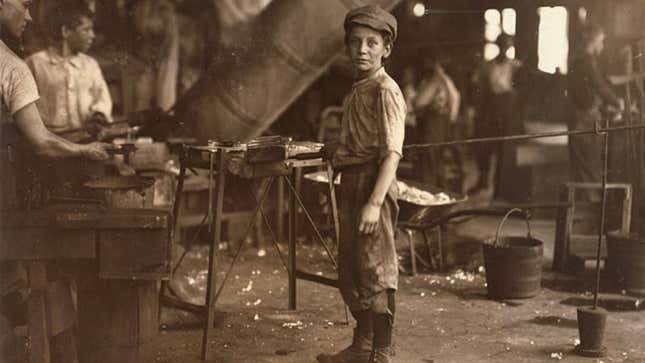
After centuries of chronic unemployment, millions of small children across the United Kingdom saw their lives drastically improve when the Industrial Revolution at long last provided them with steady factory work regardless of age, size, or experience.

"Before the turn of the 19th century, frail boys and girls had no choice but to sit at home all day, playing with their younger siblings, just watching as another empty, unproductive week passed them by," noted British scholar William Donnelley said. "Once the Industrial Revolution began, however, any child able to fit inside a narrow mining shaft, or reach deep within a malfunctioning textile press, could venture out into the world and find himself a job."
Added Donnelley, "It was a time of unprecedented opportunity for the nation's 5- to 9-year-olds."
According to records, the introduction of machine-based manufacturing provided a desperately needed solution to England's toddler-unemployment epidemic. Out-of-work children, many of whom had struggled since birth to earn any kind of wage at all, were now afforded the chance to work seven days a week, up to 19 hours a day, in such competitive industries as iron-smelting and steel-tempering.
Not only was finding employment easier than ever for countless preadolescents, but the generous overtime available to them allowed boys and girls to catch up on years of experience they had lost while learning how to walk, nurse, or, in some unfortunate cases, attend several months of school.
"As a child of the time, it must have felt wonderful to be able to go to bed at night, confident in the knowledge that a job as a coal-boy, furnace operator, or even bore-grinder machinist awaited you the next morning," historian Russell Black said. "The sense of satisfaction and well-being all those orphans must have experienced week in and week out—it's hard to imagine."
"After all, there's nothing like a full-time job to help someone get back on his feet," Black continued. "Especially if he's lost one of them in a horrifying threshing accident."